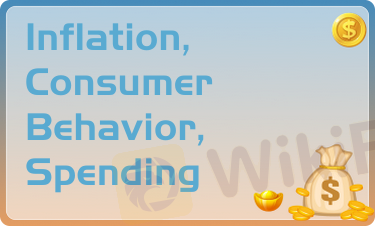
2025-02-06 06:55
IndustriyaThe roles of the central bank in managing inflatio
#firstdealofthenewyearastylz
The impact of inflation on consumer behavior is a crucial topic in economics that examines how rising prices influence the decisions and actions of consumers. Here’s a full discussion on it:
1. Understanding Inflation: Inflation is the rate at which the general level of prices for goods and services rises, eroding purchasing power. When inflation occurs, consumers find that their money does not stretch as far as it once did, leading to changes in spending habits.
2. Changes in Spending Habits: As prices increase, consumers may prioritize essential goods and services over luxury items. For example, they might cut back on dining out or entertainment expenses and focus more on necessities like groceries and housing. This shift can lead to decreased demand for non-essential products, impacting businesses that rely on discretionary spending.
3. Impact on Savings and Investment: High inflation can also discourage saving, as the real value of money decreases over time. Consumers might feel compelled to spend their money quickly rather than save it, fearing that it will lose value. This behavior can lead to a decrease in overall savings rates and affect investment trends, as individuals may seek to invest in assets that can outpace inflation, such as real estate or stocks.
4. Consumer Confidence: Inflation can influence consumer confidence and expectations about the economy. If consumers anticipate continued price increases, they may alter their spending behavior, leading to a self-fulfilling prophecy where reduced spending can slow economic growth. Conversely, if inflation is perceived as temporary, consumers may be less likely to change their habits significantly.
5. Long-Term Effects: Over the long term, persistent inflation can lead to structural changes in the economy. Businesses may adjust their pricing strategies, and wage negotiations may shift as workers demand higher pay to keep up with rising costs. This can create a cycle of inflation that is difficult to break, affecting overall economic stability.
In conclusion, inflation has a profound impact on consumer behavior, influencing spending habits, savings, investment decisions, and overall economic confidence. Understanding these dynamics is essential for businesses and policymakers to navigate the challenges posed by inflation effectively.
Katulad 0

Monix
Mga broker
Mainit na nilalaman
Pagsusuri ng merkado
Dogecoin cheers coinbase listing as Bitcoin’s range play continues
Pagsusuri ng merkado
Grayscale commits to converting GBTC into Bitcoin ETF:
Pagsusuri ng merkado
Bitcoin's price is not the only number going up
Pagsusuri ng merkado
Theta Price Prediction:
Pagsusuri ng merkado
How to Research Stocks:
Pagsusuri ng merkado
Bitcoin (BTC), Ethereum (ETH) Forecast:
Kategorya ng forum

Plataporma

Eksibisyon

Ahente

pangangalap

EA

Industriya

Merkado

talatuntunan
The roles of the central bank in managing inflatio
 Hong Kong | 2025-02-06 06:55
Hong Kong | 2025-02-06 06:55#firstdealofthenewyearastylz
The impact of inflation on consumer behavior is a crucial topic in economics that examines how rising prices influence the decisions and actions of consumers. Here’s a full discussion on it:
1. Understanding Inflation: Inflation is the rate at which the general level of prices for goods and services rises, eroding purchasing power. When inflation occurs, consumers find that their money does not stretch as far as it once did, leading to changes in spending habits.
2. Changes in Spending Habits: As prices increase, consumers may prioritize essential goods and services over luxury items. For example, they might cut back on dining out or entertainment expenses and focus more on necessities like groceries and housing. This shift can lead to decreased demand for non-essential products, impacting businesses that rely on discretionary spending.
3. Impact on Savings and Investment: High inflation can also discourage saving, as the real value of money decreases over time. Consumers might feel compelled to spend their money quickly rather than save it, fearing that it will lose value. This behavior can lead to a decrease in overall savings rates and affect investment trends, as individuals may seek to invest in assets that can outpace inflation, such as real estate or stocks.
4. Consumer Confidence: Inflation can influence consumer confidence and expectations about the economy. If consumers anticipate continued price increases, they may alter their spending behavior, leading to a self-fulfilling prophecy where reduced spending can slow economic growth. Conversely, if inflation is perceived as temporary, consumers may be less likely to change their habits significantly.
5. Long-Term Effects: Over the long term, persistent inflation can lead to structural changes in the economy. Businesses may adjust their pricing strategies, and wage negotiations may shift as workers demand higher pay to keep up with rising costs. This can create a cycle of inflation that is difficult to break, affecting overall economic stability.
In conclusion, inflation has a profound impact on consumer behavior, influencing spending habits, savings, investment decisions, and overall economic confidence. Understanding these dynamics is essential for businesses and policymakers to navigate the challenges posed by inflation effectively.
Katulad 0
Gusto kong magkomento din
Ipasa
0Mga komento

Wala pang komento. Gawin ang una.

Ipasa
Wala pang komento. Gawin ang una.